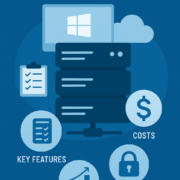Broadband Meaning: A Comprehensive Guide to Understanding Broadband
For any business to be successful, it requires a strong internet connection. No matter if you are the owner of a small start-up company or work for a giant corporation, it is crucial to know what broadband is and how it can help. However, what does broadband mean? Why is it so important for businesses in India? Here are some questions that we will answer in this B2B marketing guide –
Broadband meaning
Broadband refers to a connection that is fast and always on and is faster than a dial-up connection. Broadband is very crucial for organisations in India to communicate with their clients for operations and to do their transactions online. Dial-up, on the other hand, divides the Internet connection into channels through which data may be transmitted and received simultaneously, which is faster and more reliable.
Broadband connection types
There are numerous forms of broadband connections available in India for commercial use. These include the DSL (Digital Subscriber Line), cable, fibre-optic, satellite, and wireless broadband. There are advantages to each type. For instance, fibre-optic broadband is the fastest, which makes it ideal for use in situations that involve processing large amounts of data. Wireless broadband is mobile and suitable for organizations with branches in various locations or organizations with employees who work from different locations.
Significance of business broadband
Business broadband is tailored to meet the specific needs of enterprises. It usually delivers greater speed, a more reliable uptime guarantee, and other features such as dedicated IP addresses and service-level agreements. Internet connectivity is very important for businesses in India for interacting with clients, running cloud services, working from home, and efficient business functioning.
Selecting the correct broadband
Selecting the appropriate broadband plan for the company depends on the needs of the company and the pockets of the company. These are the number of users, the type of activity that the network is required to support (for example, data transfer, voice over IP, etc.) and the required speed and bandwidth. In India, the majority of ISPs have business broadband plans that are quite versatile and can be adjusted to properly fit the requirements of the business to provide you with the best value for your money.
Installation
The method of installation of broadband varies depending on the type of connection and the specific service provider. It entails connecting a modem and a router to enable access to the internet. Businesses also may need other networking devices to expand the coverage area within the premises. This is why installation services are typically provided to guarantee the correct configuration.
Broadband bandwidth and speed
Broadband speed defines the rate at which data flows over the internet while bandwidth is the volume of data that passes at a given time. For businesses, speed and bandwidth are two things equally important. This implies that resources can be obtained from the internet within a short time and adequate bandwidth implies that the network frees up during high usage. Understanding these concepts allows organisations to choose plans that are appropriate for their operations.
Security considerations
With the increase in the number of threats, it becomes crucial to secure your broadband connection. Business broadband plans come with additional features such as firewalls, encryption, and secure VPN access. Moreover, daily updates and security checks are needed to ensure the security of the information and the network. Cybersecurity is an important area that business organisations should consider to ensure their online data and their client’s information is secure.
Cloud services
Cloud computing is now being used in many organisations for data storage, software solutions and business continuity solutions. They require a stable broadband connection to get and use these services effectively. The availability of the internet with a fast and reliable connection enables one to upload and download files, get updates on applications and effectively collaborate using cloud technology.
Return on investment
Business broadband is therefore cheaper than other connectivity options and therefore has higher ROI when invested in. Internet connectivity reduces interruptions, enhances productivity, and enables the use of cheap software and hardware. Therefore, with the right choice of broadband plan, it is possible to obtain maximum productivity and minimum overheads in the future.
Service level agreements (SLAs)
When selecting the business broadband service providers, it is important to consider customer relations and the Service Level Agreement. A well-defined SLA can also guarantee that a certain level of service delivery is provided, for instance, concerning availability and time taken to fix technical issues. They need to have good customer service to be able to solve any connectivity problem as soon as possible so that the business is not interrupted.
Flexibility
Business broadband plans should be flexible in case the business grows or if the business needs to change. That means if your company has hired new employees, opened new branches, or is likely to increase its presence on the internet, then your broadband connection must be able to cope with the changes. There are different options available for a business depending on the requirement for an internet connection, and these plans can be changed from time to time.
Latency and its effect on business activities
Latency is the amount of time it takes for data to be transmitted over the internet. Real-time applications such as video telephony and voice over Internet protocol (VoIP) communication could be affected by high latency. For businesses, low latency is a requirement so that all can communicate effectively and manage the business as it is on the internet. This is important when choosing the right Broadband Provider & Plan and the significance of latency.
IoT (Internet of Things)
IoT is rapidly changing the economic activity of enterprises in many industries. IoT connects physical objects with computing devices and networks and therefore relies on fixed and fast connections. Business broadband also plays a role in IoT device compatibility and connectivity to enable businesses to optimise and innovate.
Regulatory requirements
Internet usage and data protection are two of the regulatory requirements that have to be complied with by the business. This involves compliance with the Telecom Regulatory Authority of India (TRAI) standards and the legal use of broadband connections. Noncompliance leads to legal ramifications and undermines the business’s ethical standards.
Final note
Understanding broadband meaning and its implications for businesses is essential for navigating the digital landscape in India. From choosing the correct internet package and maintaining security to utilising cloud services and facilitating remote work, dependable broadband access is essential for contemporary corporate operations. Investing in high-quality corporate internet allows Indian businesses to boost productivity, promote digital transformation, and remain competitive in an increasingly connected world.




